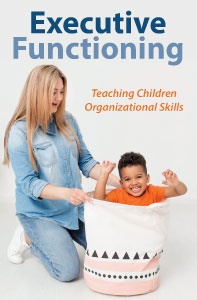We are launching our new website logins, account creation, and purchases are restricted. Any course activity is not being recorded until the new site has launched. Expected Launch Time 8:00pm EST Nov 20th.
$39

Related Courses

Executive Functioning: Teaching Children Organizational Skills

Anti-Social Youth & Conduct Disorders
When Your Young Client is Defiant
Adina Soclof, MS, CCC-SLP; Leo Christie, PhD, LMFT
CE Credit: 3 Hours
Target Audience: Psychology CE | Counseling CE | Speech-Language Pathology CEUs | Social Work CE | Occupational Therapy CEUs | Marriage & Family Therapy CE | School Psychology CE | Teaching CE
Learning Level: Introductory
Course Abstract
When Your Young Client is Defiant is a 3-hour online continuing education (CE) course that provides practical strategies for managing challenging and defiant behavior in young clients.
Adults are often at a loss when it comes to handling defiance and power struggles. Some lecture the child on disrespectful behavior. Others ignore it, hoping it will go away. Often, children with language delays learn to express dissatisfaction by whining, or throwing temper tantrums, or engaging in negative behaviors. Such behaviors frequently have a negative impact on the child’s social development, family relationships, and academic outcomes. Research shows that caregivers and parents of children with difficult temperaments may also experience significant stress. Healthcare professionals are in an ideal position to teach families how to communicate better with their children and to support clients to manage their emotions.
The techniques discussed are appropriate for all learning environments – home, classroom, playground, gym, and the therapy room. They can be used in group or individual therapy sessions, in private practice, and/or school-based settings. The techniques can be modified for each child’s developmental level, from toddler to teen.
The author begins by providing an overview of the various forms of defiant, disruptive, and challenging behavior, as well as highlighting factors that put children at increased risk for displaying such behaviors. This is followed by a discussion on the causes and five main triggers of defiant behavior. The author also provides a detailed explanation of how deficits in executive functioning can impact a child.
The remainder of the course focuses on understanding and managing difficult behavior and verbal defiance. Multiple strategies for supporting clients are discussed at length and the author provides further interventions specifically for managing executive functioning deficits and avoiding power struggles with children.
Author’s note: It should be noted at the outset that the dynamics and techniques described in this course may not be adequate or even appropriate to use with children how have more serious behavior conditions, such as oppositional defiant disorder or conduct disorders. They will require more intense and specialized mental health interventions.
Outline
Course #31-53 | 2024 | 61 pages | 20 posttest questions
Learning Objectives
Professional Development Resources, #1046, is approved as an ACE provider to offer social work continuing education by the Association of Social Work Boards (ASWB) Approved Continuing Education (ACE) program. Regulatory boards are the final authority on courses accepted for continuing education credit. ACE provider approval period: 6/12/2022 - 6/12/2025. Social workers completing this course receive 3 clinical continuing education credits.
Professional Development Resources is CE Broker compliant (#50-1635 - all courses are reported within two business days of completion). Professional Development Resources, Inc. is recognized by the New York State Education Department's State Board for Social Work as an approved provider of continuing education for licensed social workers (#SW-0664 - Note: New York social workers will receive 3 continuing education credit(s) for completing this self-study course). Professional Development Resources is also approved by the Texas State Board of Social Worker Examiners (#5678).
This online course provides instant access to the course materials (PDF download) and CE test. The course is text-based (reading) and the CE test is open-book (you can print the test to mark your answers on it while reading the course document).
Successful completion of this course involves passing an online test (80% required, 3 chances to take) and we ask that you also complete a brief course evaluation. Click here to learn more.
Have a question? Contact us. We’re here to help!
Adina Soclof, MS, CCC-SLP, is a Parent Educator, Professional Development Instructor and Speech-Language Pathologist working with children in a school setting. She received her B.A. in history from Queens College and her M.S. in communication sciences from Hunter College. Adina is the founder of ParentingSimply.com. She delivers parenting classes as well as professional development workshops for Speech-Language Pathologists, teachers and other health professionals. Adina is available for speaking engagements. You can reach her at [email protected] or check out her website at www.parentingsimply.com.
Disclosure:
Financial: Ms. Soclof receives royalty payments from Professional Development Resources on sales of her courses.
Nonfinancial: No relevant nonfinancial relationship exists.
Leo Christie, PhD, LMFT, is a Florida-licensed Marriage and Family Therapist with a doctorate in Marriage and Family Therapy from Florida State University. Past President of the Florida Council on Family Relations, Dr. Christie is a past CEO of Professional Development Resources, a nonprofit corporation whose mission is to deliver continuing education credit courses to healthcare professionals throughout the United States. He has more than 20 years' experience in private practice with a specialty in child behavior disorders and as an instructor for over 500 live continuing education seminars for healthcare professionals.
Disclosure:
Financial: Receives a salary from Professional Development Resources, Inc.
Nonfinancial: No relevant nonfinancial relationships exist.
Customer Reviews